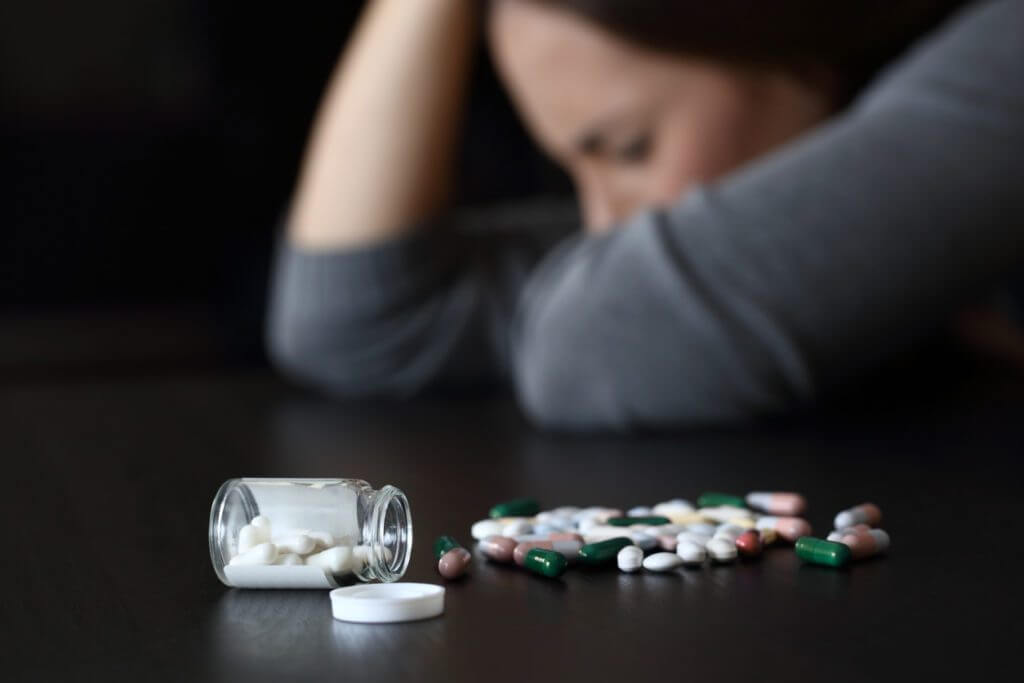If you have a problem with addiction of any kind and are seeking help in overcoming it, some treatment options have been tried and found to be helpful to many people. If you are reading this page, you have already taken the first step toward seeking answers to help you overcome your addictive behavior.
Our Beat Addiction Recovery Program is a comprehensive outpatient “non-addictive” medication-assisted treatment (MAT) for alcohol and opioid addictions. As part of your treatment plan, you may choose to participate in cognitive behavioral therapy.

Cognitive Behavioral Therapy Defined
The Mayo Clinic defines cognitive behavioral therapy (CBT) as a type of “talk therapy” where you work with a mental health therapist in a structured way to help you “become aware of inaccurate or negative thinking so you can view challenging situations more clearly and respond to them in a more effective way.”
Many thoughts and emotions cannot be logically explained, and many are also irrational. They have developed over the years based on past experiences.
For just one example, you may have developed negative thoughts about your appearance or your ability to achieve specific tasks and as a result, have low self-esteem. You avoid situations that might elicit those negative feelings of inadequacy. As a result, you may miss out on opportunities for job advancement or participation in social activities.
CBT essentially involves helping you to:
- Identify your specific negative thoughts and emotions and what triggers them.
- Evaluate whether or not your thoughts are an accurate description of reality.
- Turn your negative thoughts that are not consistent with reality into positive ones that do accurately reflect your situation.
The process allows you to choose positive thoughts over negative ones which then changes how you respond to those thoughts.
CBT and Addiction
In the treatment of addiction, studies have shown that the use of medication in conjunction with CBT has more positive outcomes. There is evidence that the two combined treatments help reduce later drug use in more cases than for those whose only therapy is standard drug abuse treatment. The Beat Addiction Recovery Program combines a medication-assisted treatment program with cognitive behavioral therapy. See our program overview for more information and to learn how specifically we can help you.
If you are recovering from your addiction, you may have automatic negative thoughts in certain situations. These thoughts often come from past thoughts of inadequacy and self-doubt. To ease the pain of the negativity, you turn to drugs or alcohol. CBT helps with this in that it:
- Provides you ways to dismiss your false beliefs and insecurities.
- Provides you with self-help techniques to turn the negative thoughts into positive ones.
- Teaches you how to communicate more effectively what your negative thoughts are and your plan to get past them.
The goal of CBT is to help you recognize situations you face every day that trigger your craving for your drug of choice.
There are three critical goals involved:
1) Recognize your triggers. Identify what types of circumstances cause you to have negative thoughts that make you want to use your drug.
2) Avoid trigger situations. When you recognize what the triggers are, you can remove yourself from the situation causing that trigger. You can work to turn your negative thoughts into positive ones that should reduce the stress and need to use your drug.
3) Cope. CBT techniques can help you cope with the emotions you are feeling, caused by the negative thoughts, so the need to use your drug is at least somewhat alleviated to a degree you can avoid it.
How to Get the Most Out of CBT for Addiction
A major element of CBT is that you will collaborate with your therapist to meet the goals you establish as you work together. At your first session, your therapist will likely spend most of the time eliciting information from you to determine what your specific problems are. Then, together you will establish your goals.
In order to get the most out of your CBT sessions, and to allow it to work for you, you can take these steps.
1) View the therapy sessions as a partnership. Be sure you and your therapist agree about what your issues are and how you plan on dealing with them.
2) Be honest with your therapist. Openly share your thoughts, your feelings, and your experience. Listen to what your therapist says and be willing to accept new insights and ways of doing things. Share your painful emotions. If you are concerned about your therapist’s reaction to anything, you might say, share that concern with the therapist.
3) Follow your treatment plan. When you are feeling discouraged or despondent, the tendency is to cancel a therapist appointment. Do not do this. This will only make you feel worse and make it more difficult to go the next time.
Confidentiality
Anything you say during your session with your therapist is, with just a few exceptions, confidential. The only information your therapist may ethically or legally share with anyone else is:
- If you threaten to harm or kill yourself.
- If you threaten to harm or kill someone else.
- If you admit to abusing a child or vulnerable adult over the age of 18.
You are unable to care for yourself.
For more information about how the Beat Addiction Recovery program works, contact us at https://www.beataddiction.com/. You may also visit us online.
